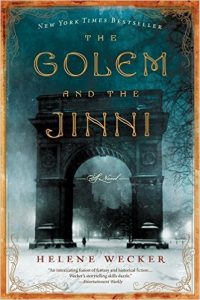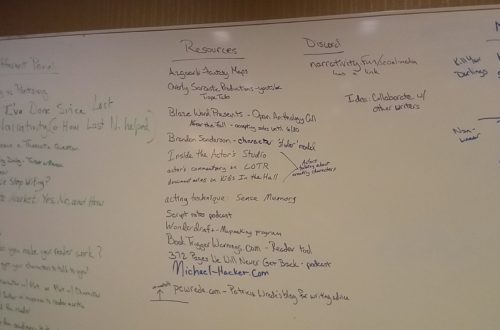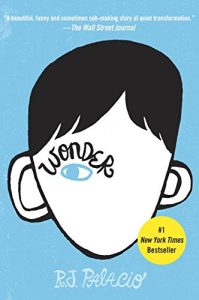
Book Review: The Golem and the Jinni by Helene Wecker
The real reason to read The Golem and the Jinni is for the writing, and by that I mean, for Helene Wecker’s use of language, and the way she combines ordinary words into something fantastical. I do not mean to take away from the story, which is good, or the characters, who are likable and (mostly) fully realized. But this is not a story which will blow your mind. These are not characters you will be aching for “more” about. What stands out in this book is the writing itself, and it is beautiful.
The story is pretty basic. There is a Golem. She is brought to life on the passage from Europe to New York. Her master dies within hours of her awakening. She reaches the city, and must figure out how to survive. Luckily, she finds her way to a Jewish ghetto and is found by an old Rabbi, who recognizes what she is and helps her.
There is a Jinni. He has been trapped in a flask for almost two thousand years. He cannot remember the events that led up to him being trapped. He is accidentally freed by a tinsmith in Little Syria, who becomes his business partner.
Both of these creatures have to learn to live in a human world without revealing their true natures to those around them. One night, by chance, they cross paths, and recognize each in the other something not quite human. They become friends.
Then, their friendship is tested, perhaps even ended, until a threat to them both rises up, and they must work together to defeat it, and realize how closely connected to each other they really are.
That’s the story. Nothing truly exciting. There are some themes regarding nature versus nurture (in this case, it is almost all nature), and a passing fascination with free will, but these are just touched on in the conversations between the two characters, and not fully explored.
The characters – the Golem, the Jinni, the Rabbi, the Tinsmith, and a few others are fully, drawn portraits. There are a few other characters, in a sense, the love interests of the Golem and the Jinni, who are important to the story, but are less realized. Still, the reader likes the characters the reader is meant to like, and dislikes the characters they are meant to dislike, without it being a stretch. It is enjoyable to spend time with these characters.
But in the end, I would not recommend this book on plot, on ideas, or even on characters. I would recommend this book on the strength of the writing. If you love language, you will love this book (making it much like The Somnambulist, by Jonathan Barnes, except that I did not instantly regret reading the epilogue in The Golem and the Jinni, the way I did The Somnambulist.)


